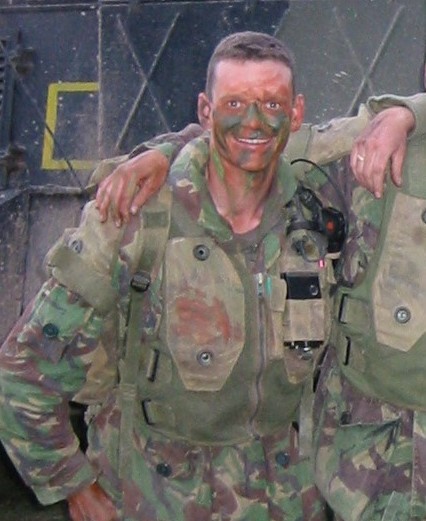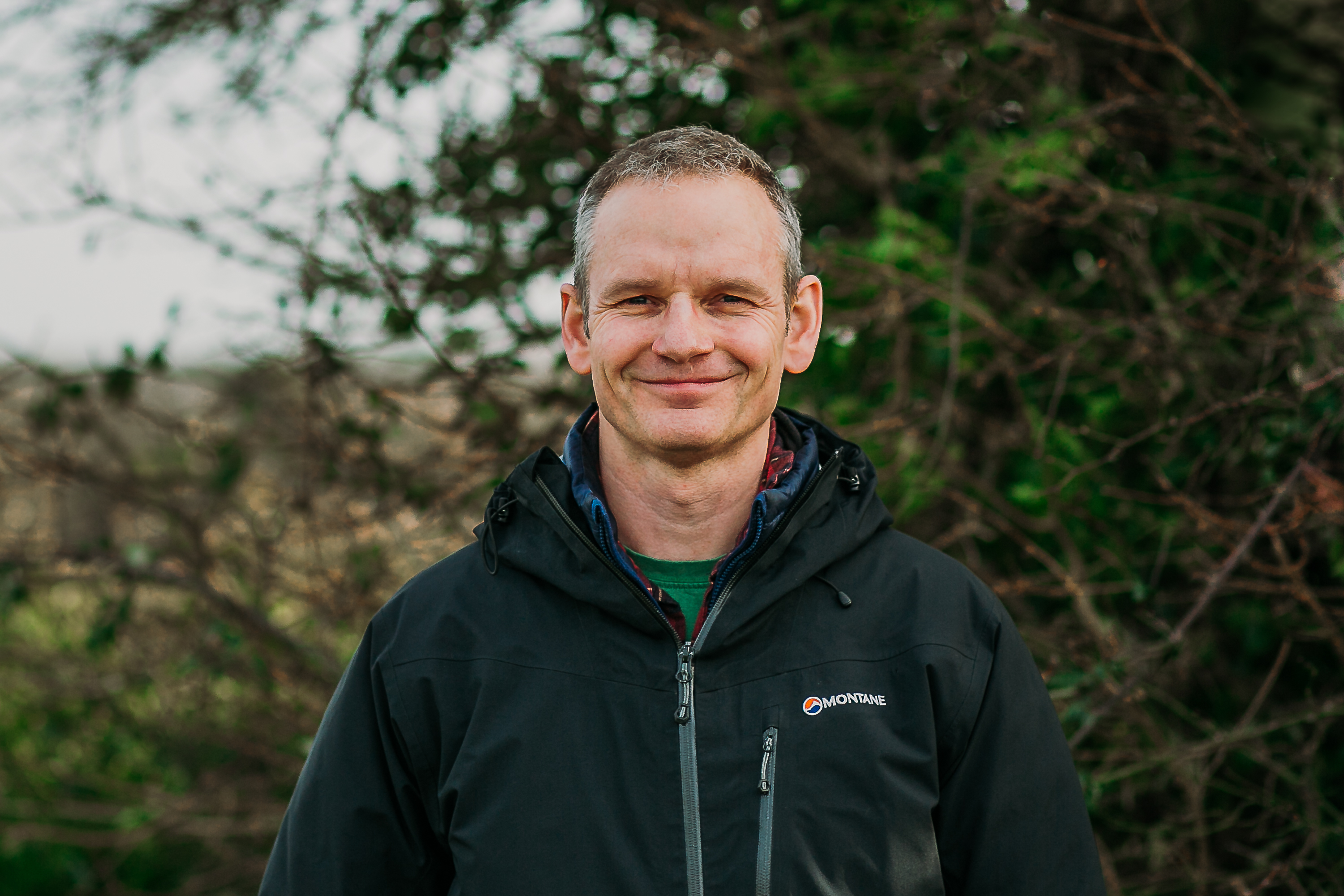Simon's Story
“I was stationary and rotting away but thanks to Combat Stress I'm moving forward again."
As a boy Simon dreamed of joining the Army like his dad and grandfather, but a deployment to Iraq had life-changing consequences. Here he shares how our specialist mental health treatment helped him move forward.
Simon’s dreams of joining the Army became a reality in 1999 when he left the Royal Sandhurst Military Academy and joined the King's Own Scottish Borderers regiment. Having already served as a reservist and been to university, he was keen to throw himself into Army life.

In 2003 Simon was deployed to Iraq at “the end of the war and fighting part, and the beginning of the nation-building operations”. It was this deployment that would change Simon’s life. “Being shot at didn’t bother me and danger wasn’t something I thought about, as I was young and the ‘gung-ho Captain’,” he says. “But what did bother me was seeing civilians in distress.
“There were two incidents that affected me. One resulted in someone dying during my first week in Iraq, which had quite an effect on me. The second incident was sometime later, involving a civilian.”
Simon spent another 10 years in the Army, before being made redundant in 2013. “I’d wanted to be a company commander, as I’d always been second fiddle and desperately wanted to go to Afghanistan with my company,” he says. “But I was made redundant, which left a bitter taste in my mouth, and I felt it had all been snatched away.”
Once back on Civvy Street Simon started to struggle but put it down to the changes in his life. “I started to become fractious in my relationships after my son was born in 2014,” he says. “Everything seemed to grate on me and built up to make me angrier the more I thought about it. It got progressively worse; arguments with my wife, not wanting to be around friends, retreating into myself.
“I felt like I was on my own, I didn’t have anyone around me that I could talk to. I threw myself into physical exercise, to keep myself away from everybody. I felt I didn’t have a place in my own family and my relationship with my son suffered for it. I wanted to be a better Dad than I was - I felt I was letting people down.”
A friend who was still serving in the Army suggested something was wrong, but Simon brushed it off, and carried on for a couple more years before a veteran colleague at work suggested speaking to Combat Stress in 2022.
“I looked on the website, did some of the self-help materials and realised I had a problem,” he says. “I called the Helpline and the advisor was amazing, she immediately took me down from this feeling of ‘I can’t go on, I’m losing my family, I’m better off elsewhere’ to realising I wasn’t alone, and people could help.”
Simon had treatment online for PTSD, starting with group therapy and then 1:1 sessions with a CBT therapist over the course of a year. “The sessions were brilliant,” he says. “We unpacked all the trauma in my life and that’s when I started to realise what was wrong.”
Simon’s therapist worked with him on a number of techniques to help his PTSD, including helping him to understand sounds. He says: “I’m deaf in one ear so it’s hard to discern sounds, which is a trigger for stress.
"The first thing my therapist did was a ‘real or not real’ grounding scenario. If I hear a sound, for example my son bouncing a rubber ball, to me it sounded like a cannon firing on an armoured vehicle. Crisp packet wrappers rattling was a radio crackling, and I was taken back to a threatening environment where I had to be hyper-vigilant. That grounding technique was really helpful for me.”

“I would say to other veterans call Combat Stress - even if you just think something’s not right and you can’t put your finger on it. Talk to Combat Stress and they will help you find a path.”
